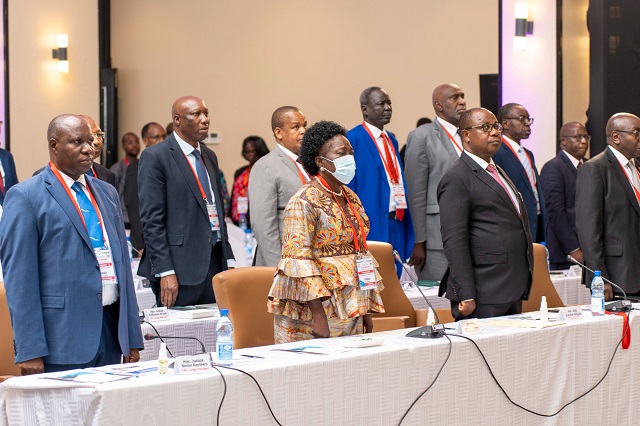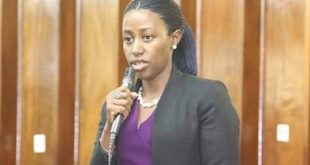
Kampala, Uganda | THE INDEPENDENT | The EAC Council of Ministers has called for the amendment of the regional treaty to allow new member states who came after it was created, to nominate judges who can represent them at the Court of Justice based in Arusha, Tanzania.
The proposal was made at the Second Annual East African Court of Justice Judicial Conference that started on Wednesday at Mestil Hotel in Kampala, whose theme is; “Transforming Access to Justice in the East African Community”.
According to the president of the East African Court of Justice Nestor Kyobera, the 1999 Treaty provides for 15 judges of the EACJ where members are nominated by each country, but since there are new members states, their hands to nominate and send their people at the moment are tied and therefore there should be an amendment.
He said that the court which started in November 2001 has two divisions, the First Instance Division and the Appellate Division which hears the appeals.
He explained that currently, six judges serve at the First Instance and five at the Appellate Division, however, the EAC Treaty provided for a maximum of 15 judges, 10 judges for the First Instance Division and five for the Appellate Division.
As such, Kayobera added that due to the limited number provided under the Treaty, newly admitted members of the EAC such as Democratic Republic of Congo which is one month old, and South Sudan which found when the treaty was already put in place cannot nominate a Judge to the Appellate bench, unless the Treaty is amended.
He revealed however that the amendment is not a business of the court, and instead it’s a business by the politicians.
The procedure to amend the treaty is that the partner state which needs the amendment makes a proposal and it is then taken to the Council of Ministers for a comment and each member state is given 90 days to make it’s views and bring back their comments.
But Ambassador Ezechel Nibigira, the Chairperson of the East African Community Council of Ministers while speaking after Kayobera, indicated that although he appreciates the role of EACJ in the intergration, agenda by resolving disputes, the court’s competence has been questioned by the member states.
He said the partner states recognize that adherence to law is fundamental to achieve the objectives of the community and the court has the judicial independence to discharge it’s duty and it’s their role to continue supporting it. But the competence of the court is a matter of concern that needs to be looked at.
Nibigira said that over time, the stake holders have been questioning the extension of consequences, whereby the court seems to overtake individual mission court powers and a tendency for nations to lose their powers as the EACJ seem to be the ultimate state of jurisdiction, which he says the situation may jeopardize matters of sovereignty of each country.
To support his argument, Nibigira said no body can love someone’s children more than their mother and therefore this issue needs to be revisited at the leadership of each level in the community for the Court to continue contributing to enhancing of the integration agenda and respect of individual partner states sovereignty and independence.
According to Nibigira, unless there is political will and support from the partner states, the court will not operate smoothly and efficiently.
The First Deputy Prime Minister of Uganda and East African Community Affairs Minister Rebecca Kadaga while officiating at the function as the Chief Guest agreed that it will be their responsibility and that of Council to make the adjustments to the Treaty, to make sure that the new member states feel comfortable and also have the rights like other members.
The amendment proposal has come at the time when Somalia has already submitted an application seeking to join the Community.
On his part, the Chief Justice of Uganda Alfonse Owiny-Dollo asked the Community members to maintain economic stability, peaceful elections and political union if they are to transform the Community and promote cross border trade without encountering challenges.
Uganda and the neighboring countries Rwanda and Kenya, have in the recent past been having issues related with failure to have free movement of people and goods at the border especially after Rwanda had closed it’s border for almost two years and Kenya blocking poultry and milk products from Uganda. These bans have since been lifted.
*****
URN
 The Independent Uganda: You get the Truth we Pay the Price
The Independent Uganda: You get the Truth we Pay the Price



